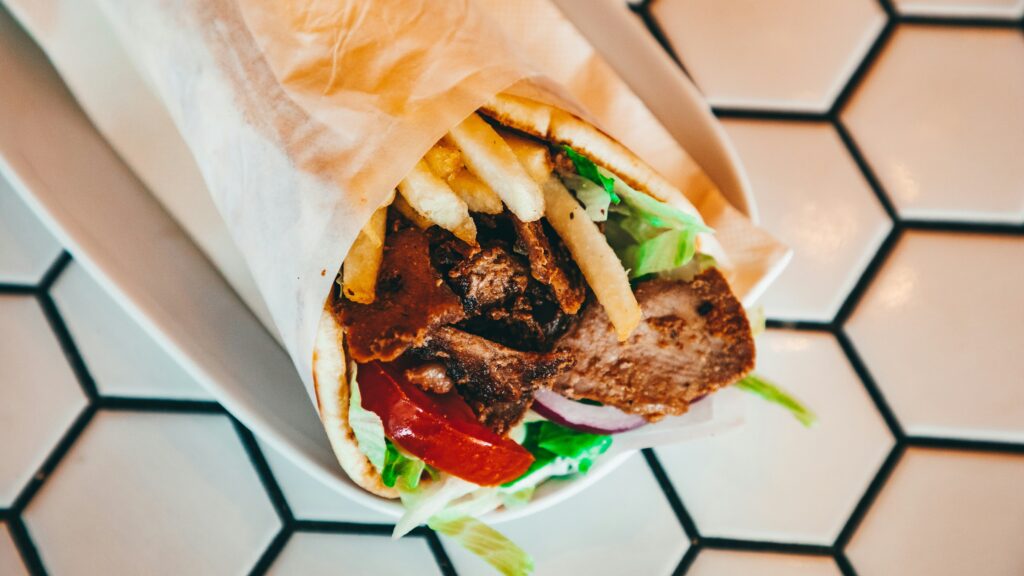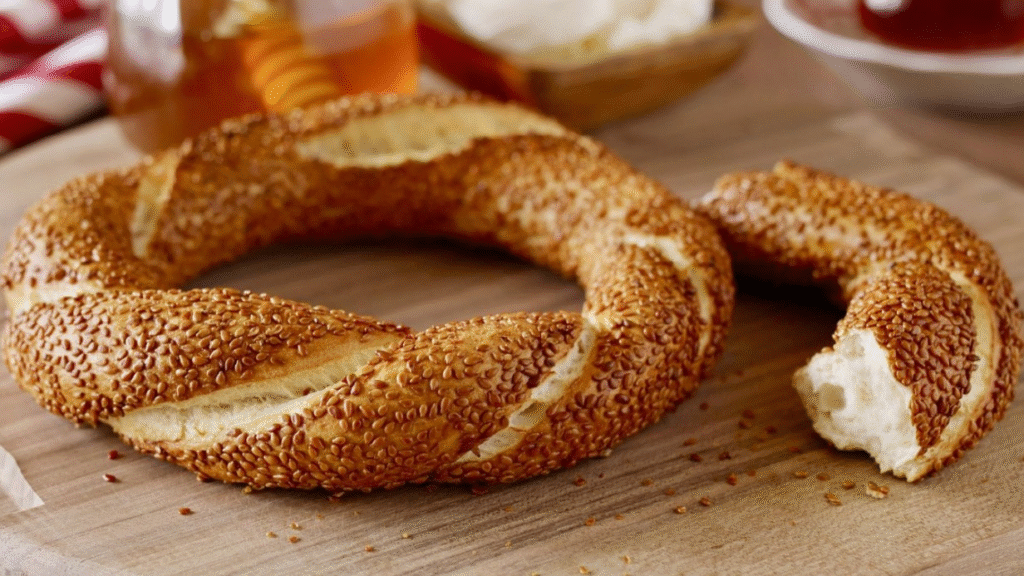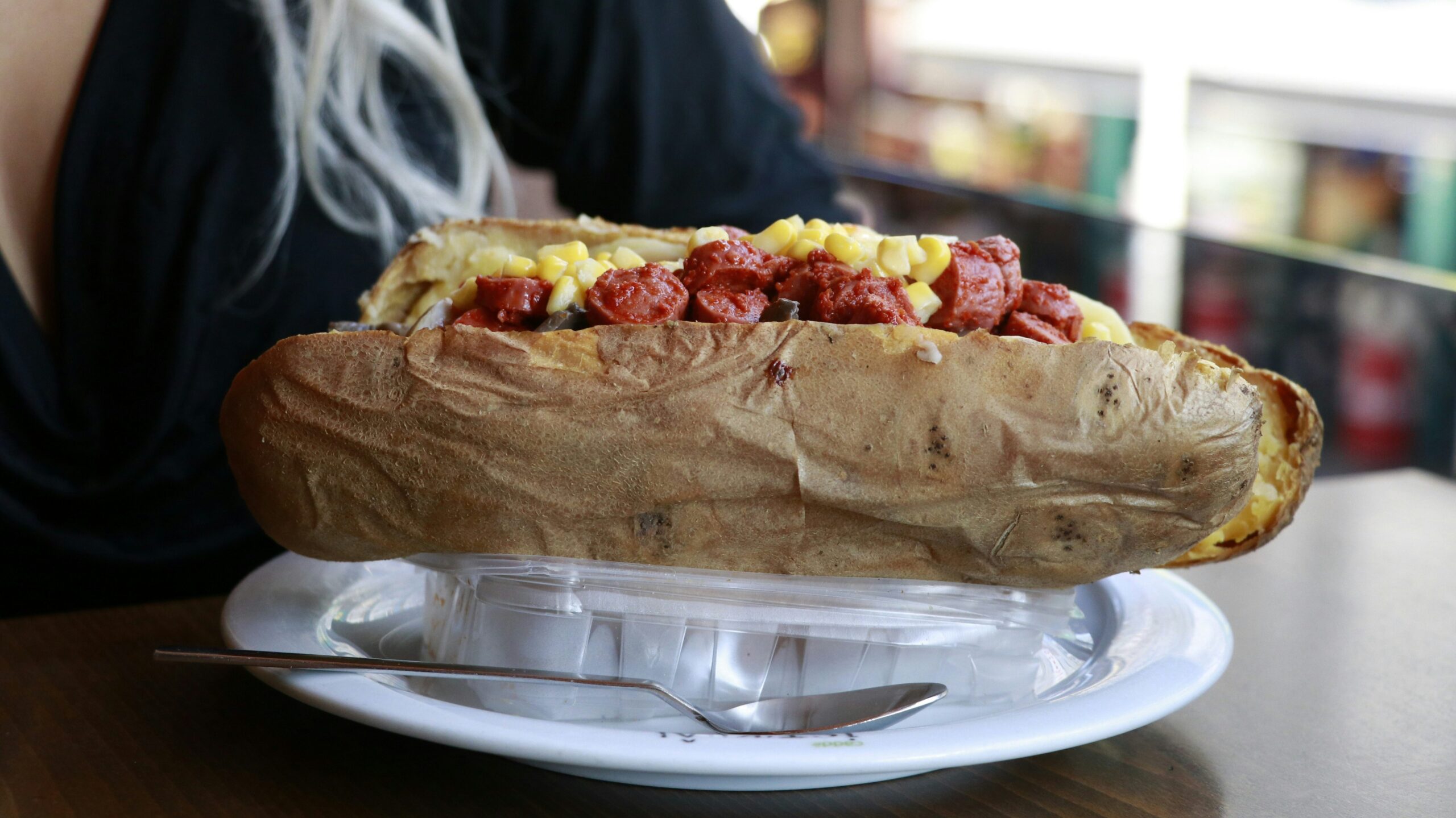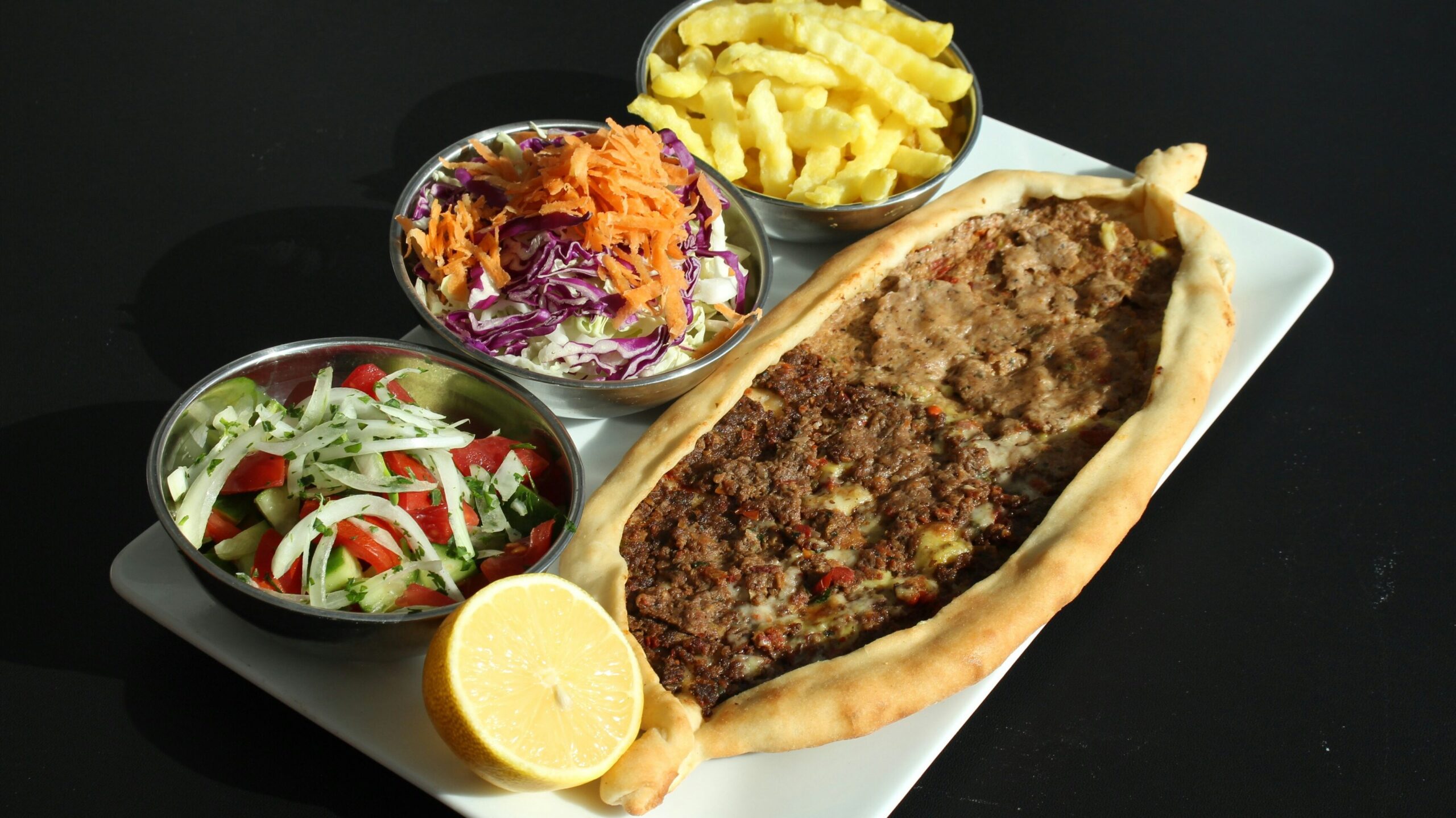The best food experiences in Istanbul begin here: Istanbul is a city where cultures, flavors, and traditions collide. Its cuisine reflects centuries of history as the capital of empires and a crossroads of trade routes. From sizzling kebabs cooked over charcoal fires to delicate baklava dripping with syrup, Istanbul offers one of the world’s richest food experiences.
Whether you’re enjoying a quick simit on the go, indulging in a long Turkish breakfast with endless tea, or sitting down for a meyhane feast with friends, this city will leave you full in both stomach and soul with the best food experiences in Istanbul.
This expanded guide dives deeper into must-try dishes, iconic neighborhoods, hidden gems, seasonal specialties, and dining tips so you can savor Istanbul like a true local.
Best Food Experiences in Istanbul: Must-Try Traditional Dishes
Kebabs (Şiş, Adana, Urfa, Döner, Iskender)

Kebabs are the heart of Turkish cuisine, and Istanbul offers countless variations:
- Şiş Kebab: Marinated cubes of lamb or chicken grilled on skewers, served with grilled vegetables.
- Adana & Urfa Kebabs: Minced lamb skewers—spicy for Adana, mild for Urfa—served with lavaş bread.
- Döner: Thin slices shaved off a vertical spit, tucked into sandwiches or wraps.
- Iskender Kebab: Döner layered over pide bread, drenched in tomato sauce and butter, topped with yogurt.
- Cağ Kebab: A horizontal lamb rotisserie from Erzurum, juicy and smoky.
- Köfte: Spiced grilled meatballs, often paired with piyaz (bean salad).
Where to eat: Zübeyir Ocakbaşı (Beyoğlu), Karadeniz Döner (Beşiktaş), Şehzade Cağ Kebap (Sirkeci), Tarihi Sultanahmet Köftecisi (Sultanahmet).
Meze & Meyhane Culture
A typical meyhane dinner is all about sharing small plates called meze. Expect:
- Cold mezes: haydari (yogurt dip with garlic and herbs), patlıcan salatası (smoked eggplant puree), dolma (stuffed vine leaves), and fava (broad bean puree).
- Hot mezes: fried calamari, sigara böreği (cheese rolls), or arnavut ciğeri (fried liver cubes).
Meals often last hours, accompanied by rakı (anise-flavored spirit) and music.
Where to try: Karaköy Lokantası (Karaköy), Sofyalı 9 (Beyoğlu), Giritli Restaurant (Sultanahmet).
Simit

This sesame-crusted bread ring is crunchy outside and soft inside, ideal with tea. Grab one from a red street cart or a bakery. Locals often enjoy it with cheese, olives, or jam.
Pide & Lahmacun
- Pide: Boat-shaped bread topped with cheese, minced meat, egg, or a combination.
- Lahmacun: Thin dough topped with spicy minced meat and herbs. Roll it up with parsley and lemon.
Where to try: Tatbak (Nişantaşı), Borsam Taş Fırın (Kadıköy).
Kumpir

A giant baked potato fluffed with butter and cheese, then loaded with toppings like corn, olives, mushrooms, sausage, and Russian salad.
Where to try: Ortaköy waterfront stalls.
Turkish Sweets
- Baklava: Layers of pastry, nuts, and syrup—best from Karaköy Güllüoğlu.
- Künefe: Shredded pastry baked with cheese, soaked in syrup, topped with pistachios.
- Lokum (Turkish delight): Chewy sweets flavored with rose, pomegranate, or pistachio.
- Milk-based desserts: Muhallebi and sütlaç (rice pudding) for a lighter option.
Turkish Breakfast (Kahvaltı)
A lavish breakfast spread includes cheeses, olives, tomatoes, cucumbers, eggs, jams, and breads. Specialties:
- Menemen: Scrambled eggs with tomato and peppers.
- Sucuklu yumurta: Fried eggs with spicy sucuk sausage.
- Kaymak: Thick clotted cream served with honey.
Where to try: Van Kahvaltı Evi (Cihangir), Rumeli Hisarı cafes.
Drinks
- Turkish Çay (tea): Turkey’s daily ritual, served in tulip glasses.
- Turkish Coffee: Rich and unfiltered, often paired with Turkish delight.
- Ayran: Yogurt-based salty drink, perfect with kebabs.
- Salep: Winter milk drink flavored with orchid root and cinnamon.
- Boza: Fermented millet drink with cinnamon and roasted chickpeas.
Where to try: Mandabatmaz (Beyoğlu), Vefa Bozacısı (Fatih).
Best Food Neighborhoods
- Karaköy: Trendy cafés, Karaköy Güllüoğlu for baklava, Namlı Gurme for deli treats.
- Kadıköy (Asian Side): A paradise of markets and eateries. Visit Çiya Sofrası for rare regional dishes, and Baylan Patisserie for iconic desserts.
- Eminönü: Balık ekmek (fish sandwiches) at the docks, Spice Bazaar for lokum and spices.
- Beyoğlu & Taksim: Street food hub—islak burgers at Kızılkayalar, dürüm at Dürümzade, late-night mussels.
- Beşiktaş: Breakfast street for lavish spreads, Balık Pazarı for fresh fish.
- Ortaköy: Famous kumpir stalls, plus Bosphorus views.
- Fatih: Erzincanlı Ali Baba for beans, Kadınlar Pazarı for büryan kebabı.
- Balat & Fener: Historic quarter with cafés and meyhanes.
- Üsküdar: Kanaat Lokantası for Ottoman recipes.
- Nişantaşı: Upscale dining and Tatbak for legendary lahmacun.
Hidden Gems
- Tarihi Kalkanoğlu Pilavcısı (Beyoğlu): Buttery rice pilav with beans and meat.
- Erzincanlı Ali Baba (Süleymaniye): Famous white bean stew.
- Siirt Şeref Büryan Kebap (Fatih): Pit-roasted lamb and perde pilav.
- Hayvore (Beyoğlu): Black Sea dishes like mıhlama and hamsili pilav.
- Van Kahvaltı Evi (Cihangir): Traditional breakfast spread.
- Durumzade (Beyoğlu): Grilled dürüm wraps.
- Pandeli Restaurant (Eminönü): Historic Ottoman dishes above the Spice Bazaar.
Dining Tips
- Ordering: Point to dishes in lokantas, ask for half portions if dining alone.
- Street food safety: Stick to busy, high-turnover vendors.
- Etiquette: Bread is free, sharing dishes is common, tipping ~10% is polite.
- Avoid: Tourist traps in Sultanahmet with pushy touts and no menus.
- Payments: Carry cash for stalls, cards accepted in most restaurants.
- Local hours: Lunch 12:30–14:00, dinner from 19:30. Street food runs late into the night.
- Tea culture: Accept tea when offered—it’s a gesture of hospitality.
Dietary Considerations
- Vegetarian: Wide selection of olive-oil dishes, mezes, menemen, pide with cheese.
- Vegan: Dolma without meat, kısır (bulgur salad), simit, çiğ köfte (modern vegan version).
- Halal: Almost all Turkish food is halal; pork is rare.
- Gluten-Free: Stick to rice, beans, meats, and grilled vegetables. Avoid breads, börek, bulgur.
Seasonal Specialties
- Spring: Artichokes, fava beans, and fresh herbs.
- Summer: Eggplant dishes, watermelon with cheese, chewy Maraş dondurma (ice cream).
- Autumn: Fish season—bluefish and anchovies—plus roasted chestnuts.
- Winter: Salep and boza, lentil soups, hearty stews, and festive desserts like güllaç during Ramadan.
Final Thoughts
Istanbul’s food culture is as layered and diverse as the city itself. Each neighborhood has its own specialties, from baklava in Karaköy to mussels in from baklava in Karaköy to mussels in Kadıköy and kumpir in Ortaköy in variety: savoring street food with locals, lingering over a meyhane dinner, or indulging in Ottoman palace recipes.
Whether you’re a backpacker on a budget or a gourmet traveler, Istanbul promises unforgettable culinary experiences.
Embrace the flavors, be open to new tastes, and remember: “Afiyet olsun!” – enjoy your meal.
